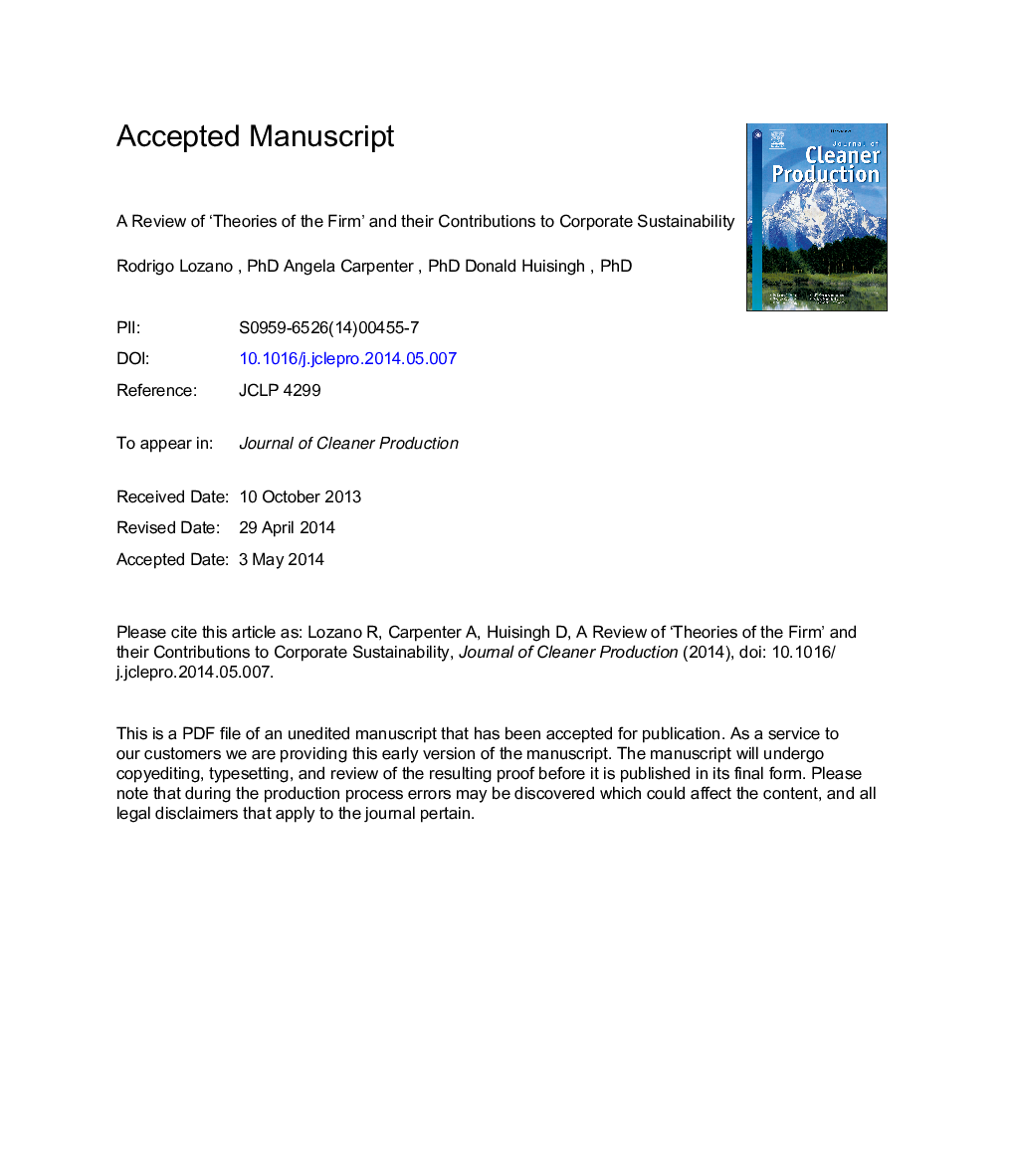| Article ID | Journal | Published Year | Pages | File Type |
|---|---|---|---|---|
| 8103241 | Journal of Cleaner Production | 2015 | 29 Pages |
Abstract
Corporate Sustainability has arisen as an alternative to traditional, short-term, profit-oriented approaches to managing the firm by holistically balancing economic, environmental, and social issues in the present generation and for future ones. Although a number of theories of the firm have been proposed within recent decades, their application to Corporate Sustainability has been limited. This paper presents an overview of the most widely used theories of the firm (such as the Stockholder Theory, the Aggregate Theory, the Contractual Theory, the Resource Based View, and the Stakeholder Theory), and analyses their contributions to Corporate Sustainability from an interpretative perspective. The discussion highlights the point that each of the theories, on its own, is limited in addressing sustainability's four dimensions (i.e. the economic, environmental, social, and time). Nonetheless, each theory, or group of theories, has a particular perspective or principles that can contribute to one or more of the four dimensions. The authors of this paper propose a 'Sustainability Oriented Theory of the Firm', which is built upon elements of those theories as they relate to Corporate Sustainability. This new theory can be useful in providing the firm's leaders and all of its stakeholders with a more complete vision of its obligations, opportunities, relations, and processes that the firm should address as it engages in helping to make societies become more equitable and sustainable in the short- and long-terms.
Related Topics
Physical Sciences and Engineering
Energy
Renewable Energy, Sustainability and the Environment
Authors
Rodrigo Lozano, Angela Carpenter, Donald Huisingh,
